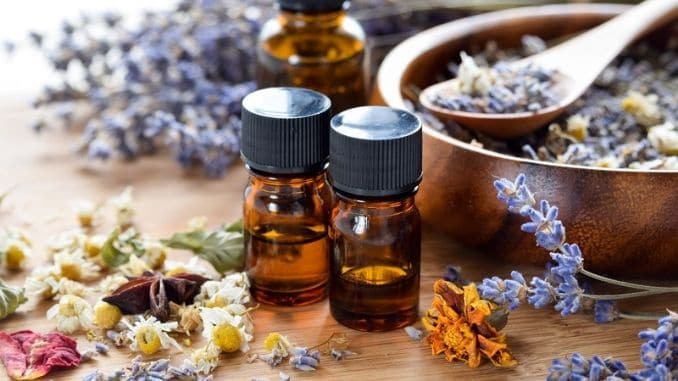What? How? Why?
The most important thing to know about essential oils: what they are and their purpose. It is very important to understand how useful they are and how they complement your health and overall wellness.
What is Essential Oil?

Essential oils have been around for very long time and have been used for physical healing, spiritual, and emotional components. Essential oil is the aromatic oil obtained through the distillation process of a plant. In the distillation process, they will either use the leaves, flowers, stems, or the root of the plant to distill this essential oil.
What are essential oils made of?
When an essential oil is distilled out of the plant, what is left with is a concentrated and volatile substance made up of chemical compounds called: esters, terpenes, sesterterpenes, monoterpenes. These chemical compounds each have specific functions that can positively affect our health and wellness. However, not everyone will have the same reaction with essential oils.
How important are essential oils?
Essential oils have an important function in the plant. They are like the essence of the plant and they protect the plant. They protect the plant from fungi, insects, predators, from bacteria as well. Essential oils are the life essence of the blood of the plant.
Important Essential Components in Essential Oils:
1. Terpenes

In general, they inhibit toxin accumulation and discharge them from the liver or kidney.
2. Esters
They are antifungal. They have a calming effect, anti-inflammatory effect, antibacterial, antiviral effects. Lavender oil itself has 40% linalyl acetate, which is an ester. In the properties of linalyl acetate, lavender oil is really good for sleeplessness, restlessness, or anxiety
3. Oxides
They are considered as expectorant, antiseptic, and anesthetic.
Most Essential oil companies will have the chemical compounds of each essential oil outlined and often can make recommendations for its optimal usage. Some books have made recommendations of which oils are appropriate for specific purposes.
Facts About Essential Oils:
1. Essential oils are indeed medicine.

It’s really important to understand that you need to take them with some knowledge and understanding of how to use them. People need to educate themselves before they start ingesting or using in their homes.
2. Essential oils are made up of minute molecules.
Your skin absorbs these minute molecules very quickly. So within seconds, it will enter your bloodstream and that's another reason why you have to be very careful about what you're taking. In the distillation process, companies will often blend and use certain chemicals that may not be beneficial. It is imperative that you do research and finds out if an essential oil is an ingestible kind.
3. Essential oils affect the limbic system.
The limbic system is a part of your brain that sits on top of your brainstem and it contains the four major components – hippocampus, amygdala, thalamus, and hypothalamus. The limbic system in your brain is in charge of your emotions. It is part of that area that regulates your atomic nervous system which regulates the fight, flight, freeze functions.
Essential oils actually are one of the few things that are able to pass the blood-brain barrier and are able to enter the body in a different way.
Essential oils, through inhalation, can actually reach and positively affect the limbic system. This is why they're so powerful for emotions – emotional healing, emotional shifting. It can give you an immediate natural lift. The olfactory system has 10,000 more power than on some of your other senses.
You can positively impact your limbic system, which is in charge of your emotions, by inhaling essential oils.
4 Ways to Use Essential Oils
1. Topical Application
The best place to apply is at the bottom of your feet, behind your ears, and also on your wrist. If you have sensitive skin, we advise using a carrier oil (such as coconut or olive oil) to dilute a few drops of the pure essential oil and lower its potency.
2. Inhalation
You can take a few drops on your palms, rubbing them together, and taking 3 breaths.
3. Diffuser

You can diffuse these oils into the air without needing to apply them directly to your skin. Adding a few ounces of water to 3-5 drops in a diffuser it can give a pleasant aroma to your home.
4. Ingestion
Don’t go overboard on ingesting essential oils. Certain companies have been approved by Health Canada for essential oil digestion. You can do personal research to know which of those essential oils brands are safe to ingest. It is very important to do some research and find out which essential oil is deemed safe for ingesting vs. a topical application.
Online Questions:
* What repels mosquitos?
You have to be careful with essential oils in terms of mosquitoes because some of them repel mosquitoes while some of them attract mosquitoes. In terms of repelling mosquitoes, you can burn citronella to make citronella oil. In general, citrus oils are insect repellants. However, with any sort of citrus oil, if you apply it topically and go out in the sun it will cause a negative reaction. There is a skin sensitivity that you can experience, almost like a burn so you have to be very careful with citrus oils on topical application. A carrier oil is advised to lessen the potency of citrus oil.
* What do you know about adrenal fatigue?
From a personal experience, nutmeg oil is very good for adrenal fatigue. You can run into the inside of your cheeks or apply it right on your lower back or kidney area. So if you're feeling stressed, fatigued all the time get your adrenals checked out.
* Is lavender oil safe for very dry skin?
Lavender is very good for very dry skin. And if you like the smell of lavender, you can add a little bit of it to your lotion, to oil, and apply it on your skin. The other thing about dry skin is to look at your diet. Make sure you are getting all the essential fatty acids in your diet because dry skin and skin issues are really a liver condition.
* Can I reduce my back pain using lavender oil?
Yes, lavender can reduce back pain because lavender is actually the Swiss Army knife of essential oil. It is good for a range of things. You can mix lavender with some oil and it will heal your sunburn. If you get a cut, sore back, or having a problem with sleeping, you can use lavender.
* What are some suggestions for Inflammation?
There are a few different oils that are very good for inflammation and one of them is helichrysum essential oil, which is also good for dry skin. Excellent for inflammation of the muscles and joints, skin inflammation, wound healing, allergies. Frankincense oil, on the other hand, is overall a phenomenal oil. Wintergreen essential oil is also something I have used and is very good for inflammation as it also has that cooling effect, but just don't ingest it. It is also relatively affordable and easily accessible everywhere.
If you have questions about essential oils, you can reach Shyloe Fayad on Facebook, or email her at [email protected], or you can join her Facebook group which is “Happiness Habits by Shyloe”.
Shyloe Fayad is Okanagan-based and the CEO & Primary Wonderer at Radical Wondering Collective. She is also the founder of “Happiness Habits by Shyloe”, which is a unique and actionable system that helps you reduce stress, depression, and anxiety so you can live the best life that you always wanted to live. She is an essential oil user since the late ’90s and is now an educator. In this article she discusses essential oils, what are they made up of, their proper uses, and why they are essential in our household and daily lives.
Take the first step towards a vibrant, inflammation-free life today. Grab your Anti-Inflammatory Cookbooks Bundle and embark on a delicious journey towards optimal health and vitality!





